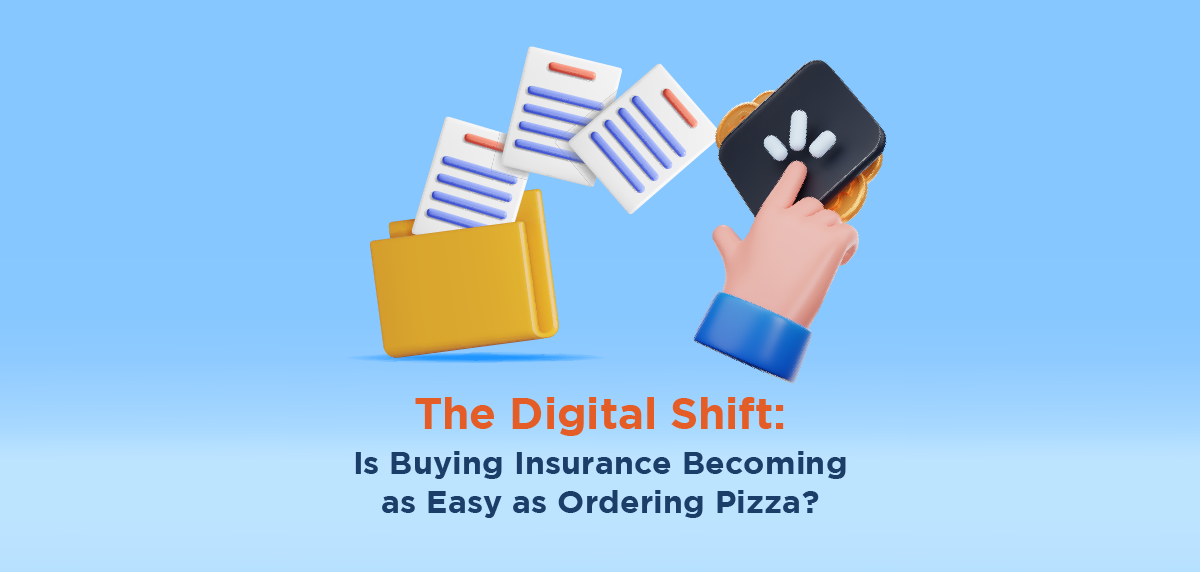Understanding the difference between critical illness and terminal illness is crucial when planning for comprehensive health and financial protection. While both conditions are serious, they differ significantly in terms of prognosis, treatment options, and insurance implications. Let’s delve right in and understand better.
Defining Critical Illness
It refers to the serious health conditions that can significantly impact a person's life but are not necessarily fatal. These illnesses often require extensive medical treatment and can lead to substantial financial strain due to high healthcare costs.
Some of the common critical illnesses, conditions, or ailments covered by policies include:
- Cancer of specified severity
- Open Chest CABG
- Kidney Failure requiring regular dialysis
- Stroke resulting in permanent symptoms
- Myocardial Infarction (First Heart Attack of Specific Severity)
What is Critical Illness Insurance?
Coverage for critical illnesses can come in the form of a singular policy or as a rider option. Both these options offer financial support for an insured person diagnosed with an illness covered by the policy.
Some of the common features of critical illness coverage are:
- Lump Sum Payout: It provides a lump sum payout upon the diagnosis of a covered critical illness, helping to cover medical expenses and other financial needs during recovery.
- Coverage for Multiple Illnesses: A single policy often covers a range of critical illnesses, offering broader protection.
Depending on the policy type, you may also experience a waiting period and a survival period.
Defining Terminal Illness
It is a condition diagnosed by a medical professional as incurable, with a life expectancy of six months or less. Terminal illnesses often involve palliative care which focuses on providing comfort rather than curative treatment.
There are various examples of terminal illnesses, such as end stages of cancer, liver diseases, and respiratory diseases. Advanced stages of heart disease with no certain treatment to get the patient back to good health can also be considered a terminal ailment. Any condition where the patient cannot be offered any certain cure can be considered in this category.
What Can Insurance For Terminal Illness Offer?
Similar to critical illness coverage, terminal illness insurance options also offer coverage for ailments considered fatal, so the policyholder can take care of any urgent needs. The key feature of such coverage is the accelerated death benefit. Many term insurance policies include an accelerated death benefit, providing a portion of the death benefit in advance if the insured is diagnosed with a terminal illness such as any final stage of cancer or organ failure.
The Role of a Term Insurance Critical Illness Rider
A term insurance critical illness rider enhances a standard term insurance policy by providing additional coverage for specified critical illnesses. This rider, which is similar to an add-on to the policy, offers financial protection against the high costs associated with treating critical illnesses.
Some of the common benefits offered by this rider are:
Provides financial support for both death and critical illness, ensuring broader protection.
Offers a lump sum benefit upon diagnosis of a covered critical illness, which can be used for medical treatment, living expenses, or any other financial needs.
Lets policyholders benefit from lower premium values when compared to the premium values resulting from the purchasing of a separate critical illness insurance policy.
How Term Insurance with a Critical Illness Rider Works
Term insurance with a critical illness rider provides dual benefits – a death benefit to beneficiaries upon the insured’s demise and a lump sum payout if the insured is diagnosed with a critical illness. Here’s how it works:
- A customer chooses a term insurance policy offering the option to add a critical illness rider.
- They opt for the term insurance critical illness rider to enhance the policy coverage.
- If diagnosed with a covered critical illness, they submit a claim to receive the lump sum benefit.
- The policy continues to provide death benefits to the beneficiaries even after a critical illness claim is paid, ensuring ongoing protection.
Comparing terminal illness vs critical illness coverage and understanding their differences is crucial for comprehensive financial planning. While both conditions are serious, they require different types of coverage and support. A term insurance policy with a critical illness rider offers enhanced protection, ensuring you and your family are financially prepared for both critical and terminal illnesses. By carefully evaluating your needs and choosing the right policy and riders, you can achieve complete coverage and peace of mind, knowing you are well-protected against life’s uncertainties.
By integrating both critical illness and terminal illness coverage into your financial planning, you can ensure robust protection for yourself and your loved ones, providing financial stability and support during challenging times.
Disclaimers:
Disclaimers: IndiaFirst Life Insurance Company Limited, IRDAI Regn No.143, CIN: U66010MH2008PLC183679, Address: 12th & 13th floor, North Tower, Building 4, Nesco IT Park, Nesco Centre, Western Express Highway, Goregaon (East), Mumbai – 400 063. Toll free No – 18002098700. Email id: customer.first@indiafirstlife.com, Website: www.indiafirstlife.com. Fax No.: +912268570600. IndiaFirst Life Insurance Company Limited is only the name of the Life Insurance Company and is only the name of the Life Insurance Product and does not in any way indicate the quality of the contract, its future prospects, or returns. For more details on risk factors and terms and conditions, please read the sales brochure carefully before concluding the sale. Trade logo displayed above belongs to our promoter M/s Bank of Baroda and is used by IndiaFirst Life Insurance Co. Ltd under License. Advt.
Ref. No.: __
BEWARE OF SPURIOUS/ FRAUD PHONE CALLS!
IRDAI is not involved in activities like selling insurance policies, announcing bonus or Investment of premiums. Public receiving such phone calls are requested to lodge a police complaint.





















